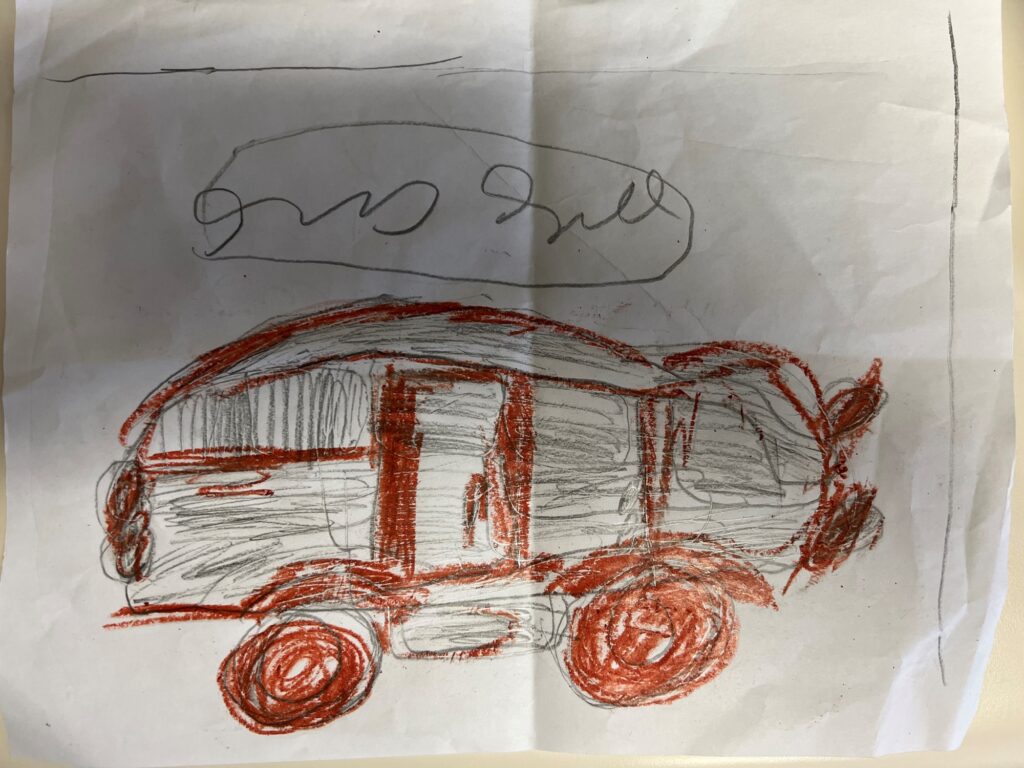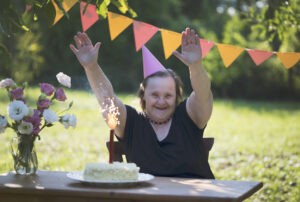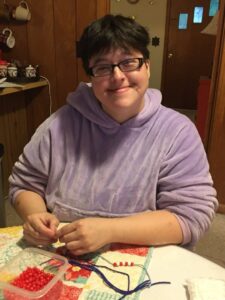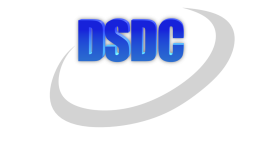October Anniversaries
| First Name | Last Name | Hired |
|---|---|---|
| PAMELA | HOLLIS | 10/25/2019 |
| ADGRINNA | RUCKS | 10/25/2004 |
| CARLA | ROBERTS | 10/18/2010 |
| WANDA | TURNER | 10/22/2007 |
| MELANIE | STOKES | 10/24/2018 |
| SUSAN | HARGROVE | 10/26/2001 |
| MICHAEL | SALEWSKY | 10/12/1992 |
| MICHELLE | FOX | 10/6/2003 |
| TINA | POWELL | 10/23/2006 |
| JAIME | SIEBUHR | 10/6/2014 |
| HILDA | GREER | 10/22/2007 |
| ERICA | TRIGGS | 10/31/2014 |
| CYNTHIA | MCLEAN | 10/13/2014 |
| DWIGHT | CREWS | 10/15/2001 |
| AMBER | DONEGAN | 10/4/1999 |
| KAREN | SESLER | 10/23/2006 |
| BARBARA | BRANDON | 10/9/2000 |
| EUGENIA | MCBRIDE | 10/11/2011 |
| KATHRYN | POWERS | 10/5/1998 |
| NANCY | BRILEY | 10/8/2001 |

October Birthdays
| Name | Birthday |
|---|---|
| JANET BEARD | 3 |
| ANITA SPICER | 4 |
| KAITLYN BROWN | 7 |
| MICHAEL PRICE | 10 |
| MELANIE STOKES | 10 |
| TAQUETTA EVANS | 11 |
| VALERIE PERRY | 13 |
| PETRA JACKSON | 13 |
| KELLY MOLLENHOUR | 14 |
| PAMELA BUTTERWORTH | 15 |
| KIMBERLY PULLEY | 15 |
| ELIZABETH FERRIS | 15 |
| DIANE REYES | 15 |
| WANDA GROVE | 16 |
| SALLY ENOCKSEN | 17 |
| JAMES VAUGHN | 17 |
| BONNIE RIOS | 21 |
| JESSICA BISHOP | 22 |
| ASHLEY HOLMAN | 25 |
| MACKENZIE RICHARDSON | 25 |
| KATHY PRUETT | 26 |
| MARY ANDERSON | 27 |
| JESSICA HOLT | 27 |
| SAMUEL FRENCH | 28 |
| DWIGHT CREWS | 29 |
| BRENDA LORY | 31 |
| OMEGA CHAPPELL | 31 |
| TARA STICH | 31 |

Frighteningly Fun Facts
1) In Idaho, it’s illegal for a man to give his sweetheart a box of candy weighing less than 50 lbs.
2) A group of unicorns are called a blessing.
3) Aardvarks have no teeth.
4) In Columbus, Ohio, it is illegal to sell corn flakes cereal on Sundays.
5) The Empire State Building is made up of 10 million bricks.
6) The shortest English sentence is: “Go.”
7) The oldest piece of chewing gum is 9,000 yrs old.
8) It is illegal to land a flying saucer in the French vineyards.
9) A kangaroo cannot hop if its tail is lifted off the ground
10) Johnny Depp is famously afraid of clowns.

Picture created by Jimmy Felts

What is it like to be kissed by a vampire?
It’s a pain in the neck!
What is a vampire’s favorite candy?
A sucker!


Down Syndrome and Increased Risk for Alzheimer’s

Woman with Down syndrome celebrating birthday party. Persons with disabilities.
Adults with Down syndrome are living longer lives with increased well-being. In 2020, life expectancy in the United States was age 60, representing an increase of 35 years when compared to 1983.1
As with all adults, advancing age increases the chances a person with Down syndrome will develop Alzheimer’s disease. According to the National Down Syndrome Society, about 30% of people with Down Syndrome who are in their 50s have Alzheimer’s disease. About 50% of people with Down syndrome in their 60s have Alzheimer’s disease.2
In observance of Sept. 21 as World Alzheimer’s Day and recognition that people with Down syndrome have an increased risk of developing Alzheimer’s, CDC and its partners are focused on sharing information and resources to help support people with Down syndrome, their families, caregivers, health care providers, and public health professionals. Estimates for the number of people with Down syndrome in the United States have grown from nearly 50,000 in 1950 to 206,366 in 2010.3 Some estimates put the worldwide population of people with Down syndrome at more than 6 million.4
World Alzheimer’s Day, September 21
Each year on September 21st, Alzheimer’s organizations from around the world concentrate their efforts on raising awareness about Alzheimer’s and related dementias. World Alzheimer’s Day was launched at the opening of the Alzheimer’s Disease International annual conference on Sept. 21, 1994.
Down Syndrome occurs when an individual has an extra partial, or whole, copy of chromosome 21. It is not yet known why this syndrome occurs, but Down syndrome has always been part of the human condition. It exists in all regions across the globe and commonly affects learning styles, physical characteristics and health.5
Scientists think the increased risk of Alzheimer’s disease among people with Down syndrome results from the extra genes present as well as other health issues such as congenital heart defects.
- Chromosome 21 plays a key role in the relationship between Down syndrome and Alzheimer’s disease as it carries a gene that produces one of the key proteins, amyloid protein, involved with changes in the brain associated with Alzheimer’s. The build-up of amyloid protein in the brain disrupts the way brain cells communicate to each other. Amyloid accumulation is seen in almost all adults over 40 with Down syndrome. Despite these brain changes, not everyone with Down syndrome develops Alzheimer’s symptoms.
- People with Down syndrome are extremely likely to experience severe issues related to their heart, which places them at increased risk for early onset dementia. About 50% of people with Down syndrome have a congenital heart defect – a condition rarely seen in the general population.
Additionally, adults with Down syndrome experience “accelerated aging,” meaning that in their 40s and 50s, they experience certain conditions that are more commonly seen in much older adults in the general population. These conditions may include:
- Changes in behavior, such as reduced interest in being sociable, conversing or expressing thoughts; irritability, uncooperativeness or aggression; sadness, fearfulness or anxiety;4
- Seizures that begin in adulthood;
- Changes in coordination and walking;
- An increase in care needs such as a person’s safety as they navigate their environment; and
- Full dependency for all personal care (bathing, dressing, toileting).
Many people with Down syndrome are diagnosed with Alzheimer’s disease in their 50s, but it is not uncommon for symptoms to occur in their late 40s. The presence of Alzheimer’s disease in people with Down syndrome can lead to a rapid, progressive decline in brain health. And, like most people diagnosed with Alzheimer’s disease, there are variables as to the onset of symptoms and the progression of the disease. Many family members and caregivers observe that people with Down syndrome appear to “slow down” in their late 40s and 50s.
Most adults with Down syndrome do not self-report concerns about memory. Diagnosing Alzheimer’s disease in a person with Down syndrome can be difficult because of the challenges involved in assessing thinking-skill changes in persons with intellectual disabilities. For this reason, information from a caregiver or close family member can be especially helpful for the health care provider during the diagnostic process. Caregivers, for example, can watch for changes in day-to-day function.
Many resources are available to support caregivers and health care providers.
Importance of Caregivers
Information from a caregiver or close family member can be especially helpful for the health care provider during the diagnostic process. Caregivers, for example, can watch for changes in day-to-day function.
- Alzheimer’s Disease and Down Syndrome: A Practical Guidebook for Caregiversexternal icon. Available in English, Spanish, and Dutch. This guidebook from the National Down Syndrome Society was written to address specific concerns related to adults with Down syndrome and Alzheimer’s disease and the people who love and support them. It provides information about the connection between Down syndrome and Alzheimer’s disease and offers suggestions about how to carefully and thoughtfully evaluate changes that may be observed with aging, and guidance about how to adapt and thrive in an ever-changing caregiving role when a diagnosis is made.
- Aging and Down Syndrome: A Health and Wellbeing Guidebookpdf iconexternal icon. The booklet is intended to be used by families, professionals, direct caregivers, or anyone concerned with the general welfare of someone with Down syndrome.
- Medical Care of Adults with Down Syndrome, A Clinical Guideline. JAMA. 2020;324(15):1543-1556. doi:10.1001/jama.2020.17024external icon
- Alzheimer’s Disease Medications Fact Sheet (en espanolexternal icon) https://order.nia.nih.gov/sites/default/files/2018-03/alzheimers-disease-medications-fact-sheet.pdfpdf iconexternal icon
- Alzheimer’s Association, Down Syndrome and Alzheimer’s Disease. https://www.alz.org/alzheimers-dementia/what-is-dementia/types-of-dementia/down-syndromeexternal icon
- National Down Syndrome Society, Alzheimer’s Disease & Down Syndrome. https://www.ndss.org/resources/alzheimers/external icon
- National Institute on Aging, Alzheimer’s Disease in People with Down Syndrome. https://www.nia.nih.gov/health/alzheimers-disease-people-down-syndromeexternal icon
1 National Down Syndrome Society. Alzheimer’s Disease and Down Syndrome. Accessed Sep. 20, 2021. https://www.ndss.org/resources/alzheimers/external icon.
2 De Graff G., Buckley F., Skotko BG. Estimation of the number of people with Down syndrome in the United Sates. Genetics in Medicine, 19(4), 439-447. https://pubmed.ncbi.nlm.nih.gov/27608174/external icon
3 United Nations, World Down Syndrome Day. Accessed Aug. 25, 2021. https://www.un.org/en/observances/down-syndrome-dayexternal icon
4 Alzheimer’s Association. Down Syndrome and Alzheimer’s Disease. Accessed Sep. 20, 2021. https://www.alz.org/media/documents/alzheimers-dementia-down-syndrome-ts.pdfpdf iconexternal icon
5 National Institute on Aging. Alzheimer’s Disease in People with Down Syndrome. Accessed Sep. 20, 2021. https://www.nia.nih.gov/health/alzheimers-disease-people-down-syndrome.
Page last reviewed: September 27, 2021

Events
Water Bottle Dickson County Community Project by DSDC People First!
Completed on Sept 10th 2021, Staff took the tote bags to Dickson County First Responders such as  Fire Dept, 5 stations in Dickson County, City Police, County Sherriff’s office, Task force and all EMS stations in Dickson County!
Fire Dept, 5 stations in Dickson County, City Police, County Sherriff’s office, Task force and all EMS stations in Dickson County!
Our People First Dickson Chapter decided about 8 months prior that they wanted to complete a Volunteer Project for Dickson County TN in Remembrance of 9-11.
We donated the cases of water, DSDC made our own labels with DSDC logo on them and we ordered tote bags to carry the water.
Richard put it out on PHS and we had several people who wanted to assist with the labels as well as staff willing to distribute on the 10th of Sept. 2021.
Staff picked up or were given the water bottle labels with our logo and the water bottles and they were placed the labels on the bottles. Once those were completed, they were put in the totes and then additional “thank you” tags were added to the bags for each department that we distributed too. Inside the tote was also our DSDC pamphlet, a letter to all of those thanking them for their
service and then Crystal, Sarah and Mary made bracelets, (We had donated the beading supplies for the project) for EMS, Fire Dept, and Police that were completed by the ladies and then attached to each tote bag that represents their Dept. Mary completed ten blue and white bracelets and Sarah and Crystal completed ten red and white bracelets to add to the tote bags.
Richard, Christine, Shawna and Beth distributed all twenty bags to the Fire, Police and EMS Departments. Feedback was wonderful and really enjoyed making the items for donation and remembrance to those that serve our community every day. We had several homes and staff that assisted in the project.

The Arc Tennessee is on a mission to salute Nashville first responders by writing cards of encouragement. We’re extending this invitation to all our community partners who expressed interest in being part of this special project honoring the 20th anniversary of Sept. 11th 2001.
We’re supplying all materials but need your help with writing cards of encouragement to Nashville first responders. Cards were delivered to all police precincts; fire stations and dispatch centers the first full week of September. Their goal was to deliver 2,977 cards…one card in honor of each life lost on Sept. 11th, 2001.
As you already know, The Arc Tennessee’s mission is to empower people with intellectual and developmental disabilities to live active lives in the community. We’re proud to announce that earlier this summer, we held a statewide art contest eliciting the talent of Tennessee’s disability community to design first responder appreciation cards. Six designs were selected by the People First Tennessee Advisory Council. The cards have been printed and were distributed!
Richard attended this and put it out on PHS for those we serve and staff to see who was interested and it was determined that DSDC could complete 200 cards for the First Responders)
Richard attended and we completed 200 hundred cards within our agency, Richard took those cards to the homes and along with staff, our Agency completed 200! Richard was able to meet and give the completed cards for the Nashville Metro Distribution! Way to Go DSDC!

People First Dickson County Chapter meetings are held by appointed officers and other members here in Dickson. Those supported run their own meetings, with minimal assistance from the mentors. They create the topics of discussion, volunteer ideas and community events!
Our next zoom for People First Dickson County Chapter is Oct. 13th at 10am.
We will be talking about our volunteer projects for the Holiday Season and cookie drive. We have three people we support that will be teaching baking classes to us virtually, so we can drop off baked goods in the community for the Holidays!
People First TN will also be having a Halloween Zoom contest, so everyone, watch out for the updates on PHS! Last year Lisa placed with her costume!
I am so proud of our Dickson Chapter of People First. For the last online Statewide meeting, Developmental Services had the most participation online of any area in TN! Go DSDC! We have new people participating each month via zoom, so please join us, we would love to have you join. We have some amazing self-advocates here at DSDC!
If you have any questions or would like more information on People First TN or People First Dickson County, please reach out to Christine and Richard here at DSDC.
Thank you so much!
Christine Theofanopoulos
Director of Compliance, QA, CQL and PCP
Developmental Services of
Dickson County, TN
Cell 931-709-39444

News
o Donna Tidwell will move to PRN October 1st.
o Pinewood Medical will be contracted to fill the DON role
o Donna will fill in and continue medication training
o Brenda Lory will complete LPN scheduling
scheduling
